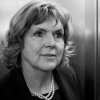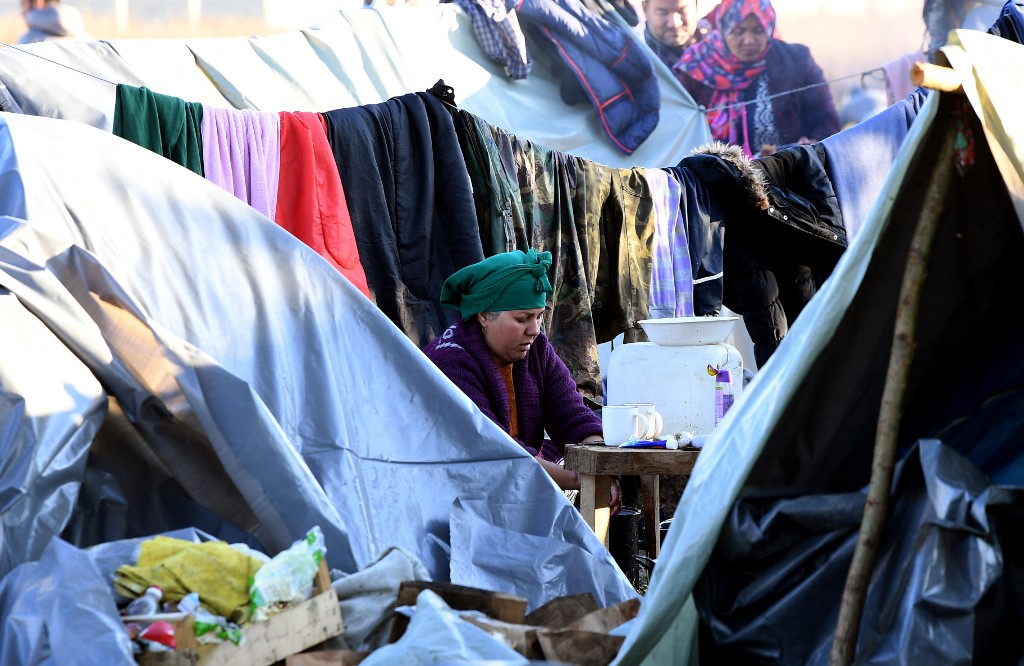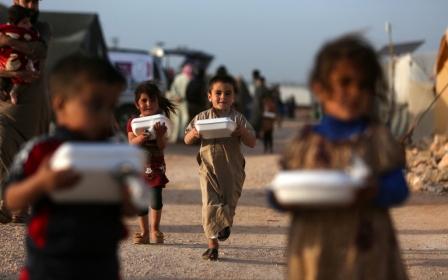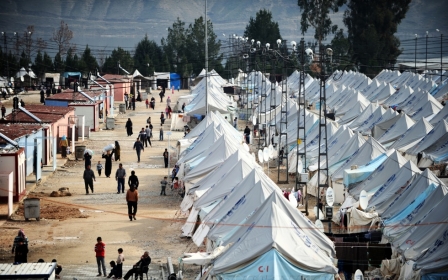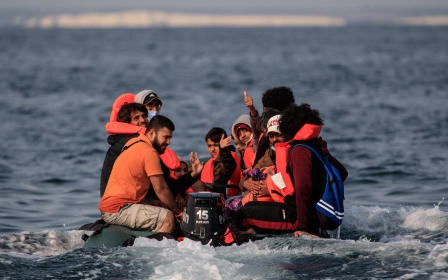People who help refugees are not traffickers or terrorists. Stop targeting them

There was a time when being kind to people was seen as a good thing. Now, around the world, I see people being attacked and targeted for helping those in need, for bringing food and medicine and water to people who are freezing in forests or dehydrating in deserts.
I'm telling governments that they should stop harassing and criminalising those who are helping migrants, refugees and asylum seekers
I’ve heard from people in many countries targeted for their work helping migrants. People in Libya told me how they were attacked and tortured for trying to help others, prevented by the government from visiting detained migrants, abused at detention centres, and threatened by human trafficking gangs.
Around the world, acts of humanity end in court cases against people whose conscience tells them it’s not okay to leave children and families to suffer and die in desperate conditions.
These people are human rights defenders, peacefully supporting the rights of others. As the United Nations special rapporteur on human rights defenders, I’ve been mandated to advise UN member states on how to better protect them, as they have promised to do.
I’m presenting my latest report to the UN General Assembly this week. Called “Refusing to Turn Away”, it details cases from every continent of people who don’t ignore what’s happening, sometimes on their doorsteps, to migrants, asylum seekers and refugees. But it also shows how, when people offer help, they risk being prosecuted, even jailed, for giving this help.
New MEE newsletter: Jerusalem Dispatch
Sign up to get the latest insights and analysis on Israel-Palestine, alongside Turkey Unpacked and other MEE newsletters
Great personal risks
I’m telling governments that they should stop harassing and criminalising those who are helping migrants, refugees and asylum seekers. Some of these defenders are lawyers who provide legal advice to asylum seekers; some are doctors who provide medicine; others are those who give soup to hungry people they see at the bottom of their garden.
Zehida Bihorac is a teacher in Bosnia and Herzegovina. In 2018, she began providing humanitarian assistance to refugees and migrants around her hometown of Velika Kladusa, close to the border with Croatia. In June and July 2020, as she drove near the border, police reportedly followed and stopped her, filmed her visiting a refugee camp, accused her of aiding illegal immigration, and implied she would be arrested.
Then, online attacks against her intensified. A Facebook group featured sexual smears, claims that she was an “immoral woman” and unfit to teach children, and a detailed description of how refugees and those helping them should be killed.
When she filed a complaint at her local police station against those making the statements, no action was taken, and she was told she was lucky that the police on duty had even listened to her.
What Bihorac chose to do, and the consequences she faced, aren’t unusual for human rights defenders working on these issues. Many take great personal risks, and are accused of being people smugglers, foreign agents, traffickers and terrorists. Government authorities, violent extremists and organised criminal gangs also attack them.
I’ve heard from defenders working on these issues who have been jailed, smeared, deported, kidnapped and physically attacked. Many are forced to do these acts of kindness in secret, and some have been killed for their work.
Acts of solidarity
Despite this, human rights defenders continue to offer legal advice, along with lifesaving medical and humanitarian aid, to those in desperate need. I’ve heard from many people living close to various sea and land borders who have decided, at great risk to themselves, to defend the rights of others. These people ought to be applauded, not vilified, for their work.
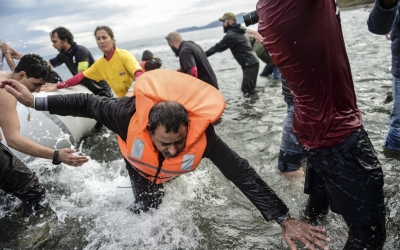
Migrants who help other migrants face increased risks. Some jeopardise their own legal status in a country by helping others, and are particularly vulnerable to attack. They should also be a special focus of our attention for the work they do.
One glimmer of good news in all this is that some courts are throwing out cases brought by authorities against human rights defenders for doing this work. We have seen defenders acquitted in France, Germany, Poland and the US. In Italy, a case was dismissed this year against human rights defenders who had helped migrants, because the judge decided “the crime was non-existent”.
But people acting in solidarity with others shouldn’t have to rely on courts to protect them - and even for defenders who are eventually exonerated and vindicated, court cases can be long, stressful and expensive.
Governments should stop penalising people for peacefully protecting the rights of others, stop targeting those who give food to the hungry or medicine to the sick, and stop prosecuting people for basic acts of kindness and decency.
The views expressed in this article belong to the author and do not necessarily reflect the editorial policy of Middle East Eye.
This article is available in French on Middle East Eye French edition.
Middle East Eye delivers independent and unrivalled coverage and analysis of the Middle East, North Africa and beyond. To learn more about republishing this content and the associated fees, please fill out this form. More about MEE can be found here.


